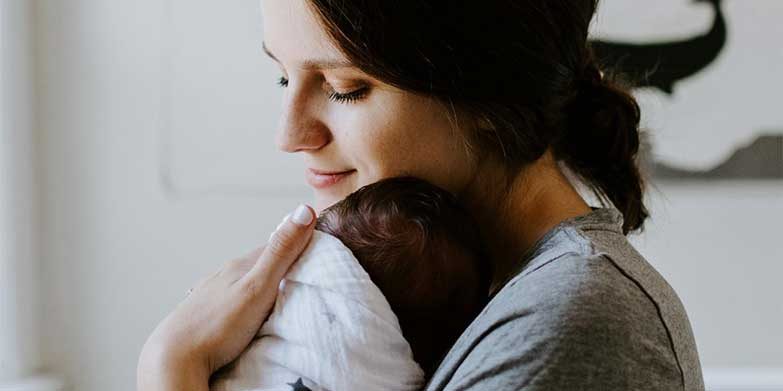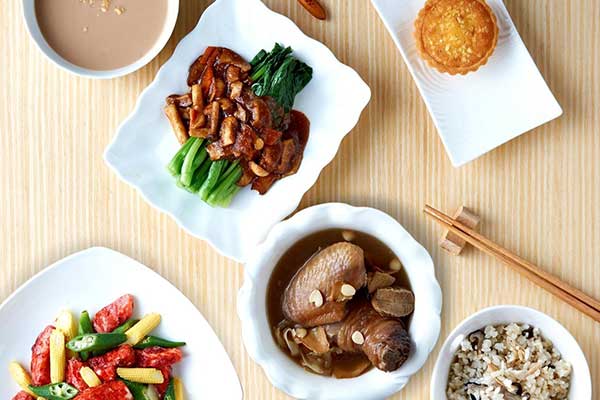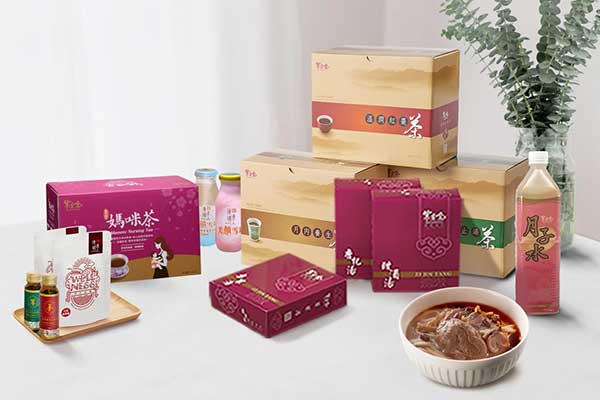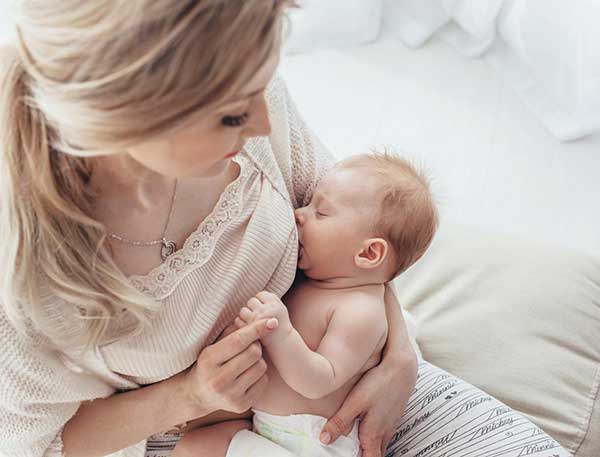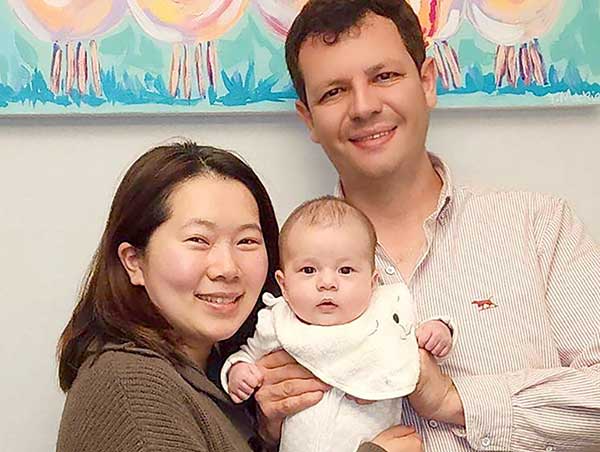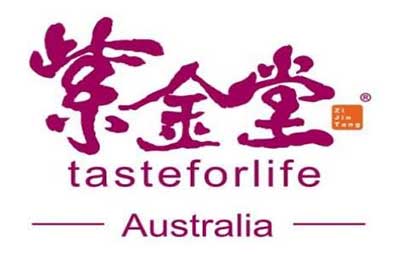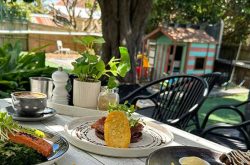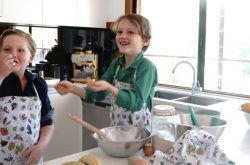Postpartum recovery can be a challenging period for many new mums, encompassing a range of physical, emotional and mental adjustments. This phase often involves navigating new responsibilities and changes in personal identity, while also dealing with the physical recovery from childbirth. Canadian model and YouTube influencer Taylor R shares her own experience of infertility and her choice to embrace traditional Chinese confinement practices following the birth of her long-awaited son.
Chinese Confinement Practices
Hong Kong based Canadian model and YouTube phenomenon Taylor R (who has a massive 1.3 million subscribers on her channel and 670k Instagram followers) recently gave birth after a three-year struggle with infertility.
While infertility isn’t unusual, her decision to follow Chinese confinement practices for a month after the birth of her much longed for son is pretty rare for someone from a Western background, even if they do live in Hong Kong! Still to Taylor, after a lot of research, it made complete sense. She felt it was the best choice for her and her baby.
“These practices are all about taking time to rest and recover after pregnancy, labour and childbirth, so that the mother has her health and the strength to play her part in caring for a newborn in the long term.”
In her video, she explores (with a lot of humour) what “sitting the month” (or confinement) is and how it’s been modernised to fit with contemporary life, its health benefits, and what life was like living with a confinement nanny (or a ‘pui yet’ in Chinese), a lovely lady named Carole.
Straight after birth
At the beginning of her video, Taylor did a round-up of how new mums are treated after giving birth around the world.
- In Japan where a full-on congratulatory meal is served, and mums are personally taken care of in the hospital for 5-14 days.
- In Korea, mums stay in a hotel with massages, beauty treatments and baby classes.
- In France all mothers are given free pelvic floor physio.
- In Finland each mum is gifted everything – from bibs to nappies – that her baby would need for a year.
- In Asia, Mum is given A LOT of attention.
This stands in sharp contrast to Australia where the new Mum is given practically no attention – the focus is all on the baby. And, guess what? In Asia they have much lower rates of postpartum depression, better breastfeeding outcomes and faster physical recovery for the mother after giving birth. So isn’t it time we started looking at some of these practices and incorporating them into our own lives here in Australia?
The first thing Taylor did was follow a specific diet to help with her physical recovery. According to Traditional Chinese Medicine (TCM), the significant amounts of fluid and blood lost while giving birth causes the body to go into a state of cold or ‘Ying’ and warm foods are needed to rebalance things (that’s right Ying and Yang!). A lot of special soups are needed as well as teas and red date tea is of significant importance in helping mothers regain their health. Even in Western medicine, the red date is known as a superfood and pretty well every dietician considers it a natural wonder. Yes, check it out!
“After confinement I felt relaxed and empowered and, in a position to handle everything,” said Taylor.
If only most Australian Mums felt the same way!
What is a Confinement Nanny?
One of the key things to confinement is to get the right ‘pui yet’ (confinement nanny) to guide you through the process. Here in Australia, pui yets, needless to say, are rare, but they can be found and often Australians of Chinese or other Asian and also Middle Eastern backgrounds, turn to their mothers or mother-in laws for support. For those without family here, there are companies that help with both the right foods and the right care.
Taste for Life is the company in Australia with the best reputation on confinement food and postpartum support, and they are based right here on Sydney’s North Shore. They have DIY confinement package and ready-made fresh confinement meals with all the right foods and herbs and traditional Chinese herbal nutrition. Each meal is tailored to each mother (not all births go the same way and blood loss and fluid loss can vary and this is taken in account). Plus, different countries practice things slightly differently so that is also catered for too.
CONFINEMENT MEAL DELIVERY IN SYDNEY
The right help from Taste for Life
Taste for Life is there before, during and after pregnancy providing information, pregnancy nutrition, postpartum confinement meals and herbal tonics to help with breastfeeding nutrition. They also provide miscarriage recovery meals and menstrual packages in addition to confinement meals. In Australia when people talk about maternal healthcare, they usually mean that brief check-up 6 weeks after giving birth when you see a nurse and that’s it.
Many mothers particularly struggle with breastfeeding and can often feel like a failure if it doesn’t go completely to plan. Taste for Life offers every mum her own consultant to look after her needs including nutrition and breastfeeding tips. Each consultant of the team has more than 10 years’ experience in healthcare, nursing, nutrition and in TCM. The team can speak English, Mandarin, Cantonese and can help customers from all different backgrounds.
How is modern confinement care delivered?
Modern confinement care complements the traditional approach with evidence-based practices, so it is up to date. For instance, traditional Chinese confinement rules ban air conditioning (that practice is out the window now – just cover your shoulders and feet for Yin and Yang balance purposes) and no washing hair (again – it’s important that mums are hygienic for themselves and their babies, so this is no longer encouraged).
Taste for Life also helps with intergenerational relationships. Many Asian and Middle Eastern Australian women want to follow their mums or grandmothers wishes but want to do it in a modern way to fit with their lives and beliefs. Using a third party rather relying on a mother, grandmother or mother-in-law helps with that.
Meet Teresa and Joseph
Teresa, originally from Taiwan, married Joe an Italian Australian from Sydney. They turned to Taste for Life for support as Teresa was so keen do confinement. Taste for Life is great for couples from different backgrounds like Teresa and Joseph, with qualified dieticians on hand to explain the very real benefits mentally and physically of confinement for the mother to help create a peaceful environment for the pre and postpartum family.
With Taste for Life’s help Joseph was soon a convert – you can read their interview here.
Taste for Life: Essential Details
- Website | Blog
- Facebook | Instagram
- Email: [email protected]
- Phone: 1300 799 788

